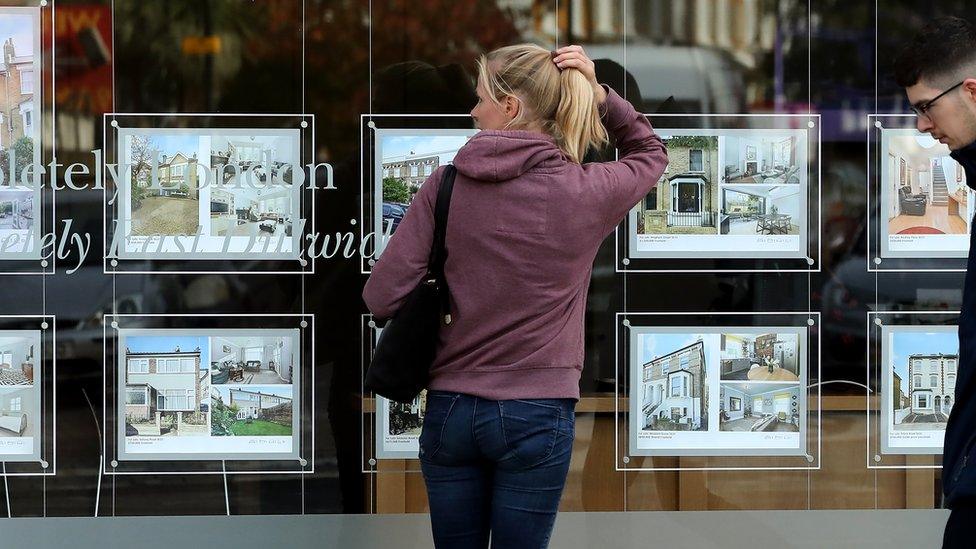Under-30s 'spend less than same age group in 2001'
- Published

Young people under 30 are spending less on non-housing items than the same age group in 2001, a new report suggests.
The Resolution Foundation think tank studied changes in pay, housing, taxes and benefits to see if it was still true that newer generations are better off than their predecessors were.
It found under-30s are spending 7% less than that age group did 18 years ago. Over-65s' spending has risen by 37%.
The think tank said it did not want to turn generations against each other.
But it said comparing generations was an "essential tool" for understanding what is changing in the UK economy and society.
In what it calls its "intergenerational audit",, external the Resolution Foundation - which aims to improve living standards for those on low to middle incomes - said its research supported the idea that millennials and members of generation X have seen a squeeze on spending for "fun".
Meanwhile, in terms of pay, people under 30 have seen the biggest recovery in salaries since the financial crash in 2008.
But those in their early 30s are being paid 3% less than someone born 10 years earlier, its research suggested.
The report also found that for those aged over 50 there is a gender divide: The report finds that women in their late 60s have a little over half the wealth of their male counterparts. The gender difference is not so pronounced among younger generations.

The report said there is "widespread pessimism" among the UK public about young people's prospects
David Willetts, president of the Intergenerational Centre within the think tank, said: "From frustrations about buying a first home to fears about the cost of care, Britain faces many intergenerational challenges.
"The big living standards gains that each generation used to enjoy over their predecessors have stalled.
"Welcome steps are being made, from stronger pay growth for young millennials to the success of auto-enrolment into pension saving."
Throughout the course of the 20th Century, each generation traditionally enjoyed higher living standards than the generations gone before.
But there is now widespread pessimism among the UK public about young people's prospects of improving on their predecessors' living standards, the report said.
Despite some good news, in its conclusion the think tank said its research suggested Britain "is a society in which cohort-on-cohort living standards progress is less of a given".
It added that it suggests "inheritance from family may have more of an impact on individuals' lifetime living standards than how much they earn, with implications for intra-generational inequality".

- Published12 September 2018

- Published3 February 2019

- Published9 May 2019

- Published8 March 2019

- Published4 December 2018
